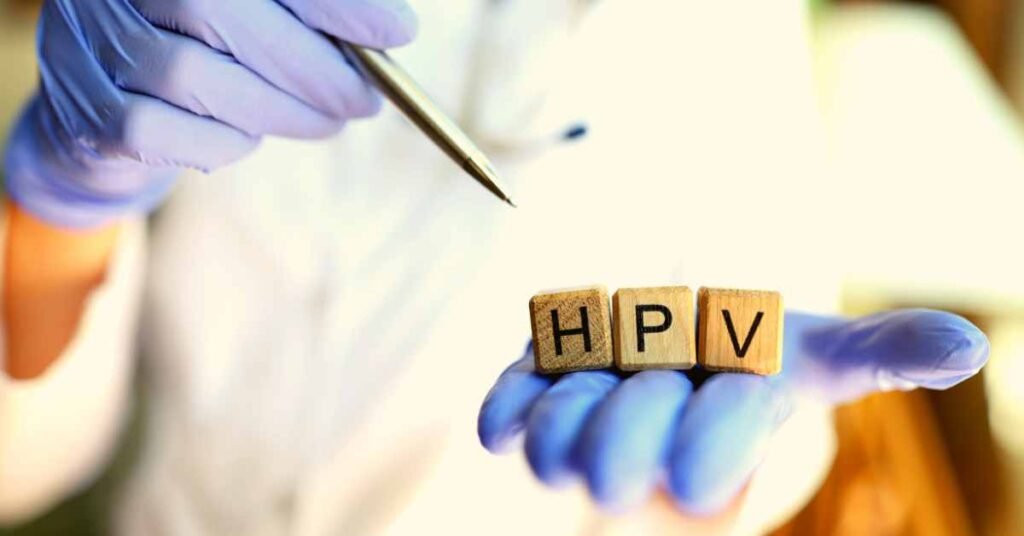Human Papillomavirus (HPV) is a widespread viral infection that affects millions of people globally.
While some strains are relatively harmless, certain high-risk types can lead to cervical and other cancers.
In addition to conventional medical interventions, there is growing interest in exploring the potential of natural remedies, particularly plants and teas, in suppressing HPV and supporting the body’s immune response.
This article delves into the intriguing world of botanical solutions and their potential benefits in managing HPV infections.
Understanding HPV

Before delving into plant-based remedies, it’s essential to understand the nature of HPV.
HPV is a group of viruses that can infect the genital area, as well as the mouth and throat. It spreads through intimate skin-to-skin contact and can manifest as warts or cause changes in cells that may lead to cancer.
While vaccines are available to prevent certain types of HPV infections, there is no cure for existing infections.
This has led researchers and individuals alike to explore alternative and complementary approaches to managing HPV.
Teas with Antiviral Properties
Green Tea (Camellia sinensis)
Green tea has long been celebrated for its numerous health benefits, and recent studies suggest that it may have antiviral properties that could be relevant in the context of HPV. The polyphenols, particularly epigallocatechin gallate (EGCG), present in green tea have demonstrated antiviral activity against various viruses, making it a promising candidate for further exploration in the context of HPV suppression.
Echinacea Tea (Echinacea purpurea)
Echinacea, commonly known as purple coneflower, is renowned for its immune-boosting properties. While more research is needed, some studies suggest that echinacea may have antiviral effects. Regular consumption of echinacea tea may potentially enhance the immune system’s ability to combat HPV infections, although it should not be considered a standalone treatment.
Turmeric Tea (Curcuma longa)
Curcumin, the active compound in turmeric, has been extensively studied for its anti-inflammatory and antiviral properties. Some research indicates that curcumin may inhibit the replication of certain viruses, making turmeric tea an interesting addition to the arsenal of natural remedies that might aid in managing HPV infections.
Plants with Potential Antiviral Properties

Astragalus (Astragalus membranaceus)
Astragalus, a staple in traditional Chinese medicine, is known for its immune-boosting properties. Research suggests that it may have antiviral effects by stimulating the production of interferons, which play a crucial role in the body’s defense against viruses. While more studies specific to HPV are needed, incorporating astragalus into one’s herbal regimen may contribute to overall immune health.
Reishi Mushroom (Ganoderma lucidum)
Reishi mushrooms have a long history of use in traditional medicine, particularly in Asian cultures. These mushrooms contain bioactive compounds that have demonstrated antiviral properties in some studies. While research on their effectiveness against HPV is limited, the immunomodulatory effects of reishi mushrooms may support the body’s ability to control viral infections.
Cat’s Claw (Uncaria tomentosa)
Cat’s Claw, native to the Amazon rainforest, has been traditionally used for its immune-boosting properties. Some studies suggest that it may possess antiviral activity, making it a potential candidate for supporting the immune system in the context of HPV infections. However, more research is needed to establish its efficacy in this specific context.
Combining Approaches for Holistic Health
It’s important to note that while the potential antiviral properties of certain plants and teas are promising, they should not be viewed as standalone treatments for HPV.
Conventional medical interventions, including vaccines and medical treatments, remain crucial in managing HPV infections and preventing associated complications.
Moreover, maintaining a healthy lifestyle is paramount in supporting the body’s natural defenses.
A well-balanced diet rich in fruits, vegetables, and whole grains, regular exercise, stress management, and adequate sleep all contribute to overall immune health.
Final Word

The exploration of plants and teas with potential HPV-suppressing properties opens up new avenues in the quest for complementary and natural approaches to managing viral infections.
Green tea, echinacea tea, turmeric tea, astragalus, reishi mushroom, and cat’s claw are just a few examples of the diverse botanical options that may offer support in the context of HPV.
While research in this field is ongoing, it’s crucial to approach natural remedies with a balanced perspective and in consultation with healthcare professionals.
Integrating these botanical solutions into a holistic health approach, along with conventional medical interventions, may provide a multifaceted strategy to support the body’s immune response and overall well-being in the face of HPV infections.
MEDICAL DISCLAIMER
Itsnevernotteatime.com cannot and does not contain medical/health advice. The medical/health information is provided for general and educational purposes only and is not a substitute for professional advice.




